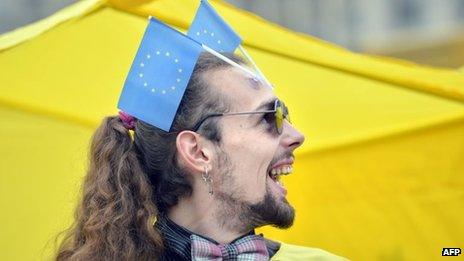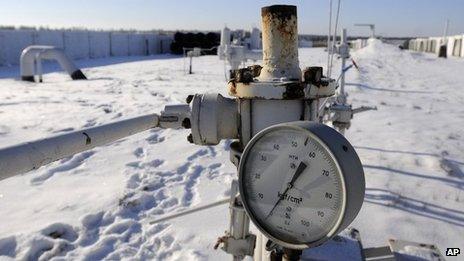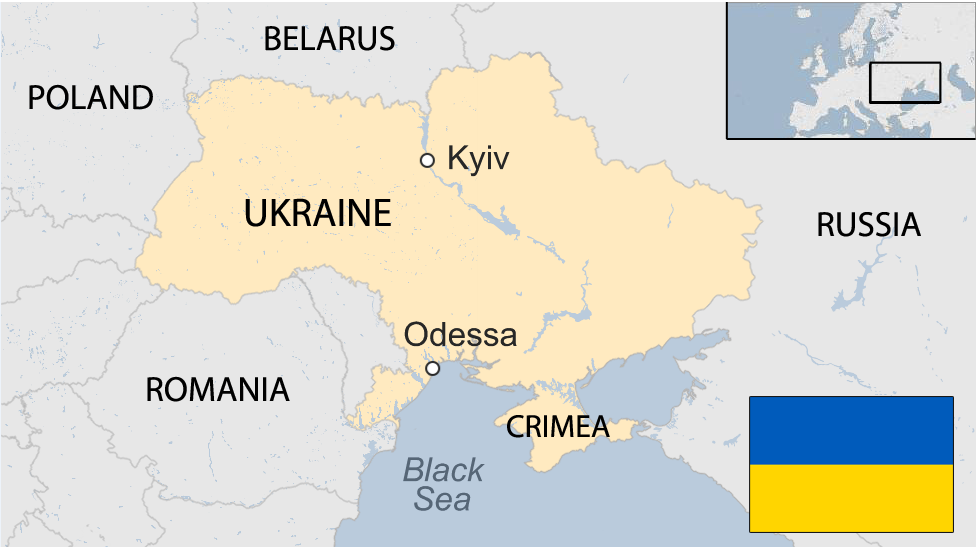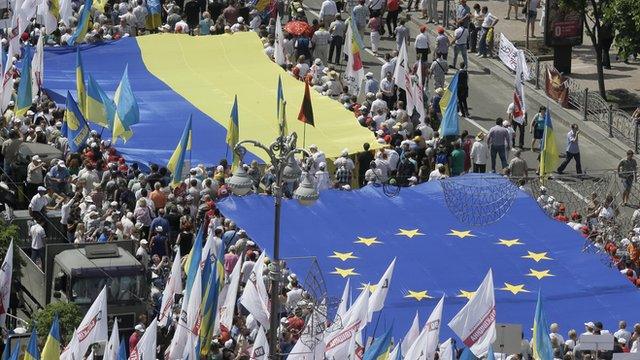Ukraine throws EU's 'Eastern Partnership' into doubt
- Published

Ukrainians keen on closer ties with the EU may now have to wait
The road to next week's Eastern Partnership summit - to be held in the Lithuanian capital, Vilnius - was never going to be easy.
But Ukraine's announcement that it is freezing preparation for a major trade deal with the EU ensures that the next few days will be a steep diplomatic climb.
Is Ukraine, and in particular President Viktor Yanukovych, bluffing? Or is this decision final? No-one in EU policy-making circles can know for certain, but the signs are not looking good.
"We're not jumping to any conclusions," said the Lithuanian Foreign Minister Linas Linkevicius, in an initial reaction during a visit to Brussels. "We have received mixed messages from Ukraine before… let's wait and see."
His Swedish counterpart, Carl Bildt, was rather more forthright.
"Ukraine government suddenly bows to Kremlin," he tweeted. "Politics of brutal pressure evidently works."
There are bound to be further twists and turns in the days ahead. But pressure from Moscow for Ukraine to reject the trade and cooperation agreement with the EU has been intense.
Russian trade restrictions, increased border controls and threats of further measures have caused real anxiety.

Some had feared Russia could use its gas supplies as a weapon against Ukraine
Key ingredient
The biggest concern is a repeat of 2009, when Russia cut off gas supplies to Ukraine in a dispute about prices, causing fuel shortages across Europe in the middle of winter.
So there is a lot at stake for the EU, as it tries to develop closer relations with its eastern neighbours.
The idea is to enhance co-operation with six countries - all formerly part of the Soviet Union - on a whole range of economic and governance issues, without making any promises about the prospect for future EU membership.
"This is the first Eastern Partnership summit that really matters," argued Steven Blockmans of the Centre for European Policy Studies.
"The whole idea essentially falls apart without Ukraine."
Other countries - Georgia and Moldova - which do intend to sign initial trade agreements with the EU in Vilnius might dispute that. But they know that Ukraine is the key ingredient in the whole deal.
"Even if there is no agreement with Ukraine right now, it could happen at a later stage," said Georgia's ambassador to the EU, Natalie Sabanadze.
"The Eastern partnership is not a tried and tested model, it's not something the EU has done before and it will have to evolve."
But there has been criticism that European diplomacy in the run-up to the Vilnius summit has turned this into a zero-sum game - a choice between the EU and Russia with little middle ground.
That has put huge strain on countries like Ukraine. But if the government in Kiev stands by its decision to delay the chance of signing up to closer relations with the EU, it could be several years before it gets another opportunity.
- Published27 January

- Published15 October 2013
